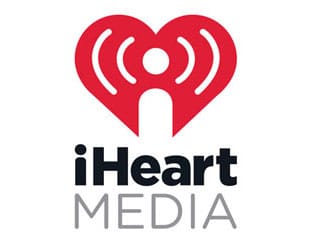Howard Berman (D-CA) and many other members of Congress feel it's time for a change in the way musicians are compensated when their material is performed on-air. Other venues pay for performance rights, and Berman said it's hard to justify an exemption for any one platform. And because America does not have an adequate performance right, American artists cannot get compensation in overseas, even though they provide most international music. What should give broadcasters pause is the fact that his views were largely echoed by Darrell Issa (R-CA), who is not going to be mistaken for a liberal Democrat any time soon. He said broadcasters should embrace the change that he is sure is coming, and that its ramifications will be wide-reaching. "The change we make is a change we make for the rest of the world..let's make a change we're all proud of," Issa stated. He also called for an all-broadcast panel in the near future to discuss the matter.
The Subcommittee on Courts, the Internet and Intellectual Property Ranking Member Howard Coble (R-NC) spent his statement time reading his own brief outline both sides of the issue into the record. He said he has friends on both sides of the issue "…and I want to make it clear that I'm with my friends." ICBC's Charles Warfield told the gathering that he wondered why the recording industry wished to bite the hand that feeds it, and the ultimate result of any changes in the current system will likely be negative for both sides.
SmartMedia observation: Any time Democrats and Republicans demonstrate general agreement, as they did today, it means that the NAB has its work cut out. There was much talk of coming up with an equitable system that attempts not to punish small stations. But there seemed to be widespread sentiment to move ahead on this. Beware, folks – legislators are at work.
Testimony summaries:
Paul Hodes (D-NH): Songwriters, member of ASCAP, also covered other people's songs. The song does not come alive without the performance. The music industry has changed in my lifetime. In 80s, I was desperate to get my vinyl recording on the radio. Totally different now in every way. I'm proud to say that the other day I received a check the other day from SoundExchange for $19.58. Musicians are small, independent businesses looking to make a living throught many different streams of incomes on very tight budgets. "This area of federal policy is one that has needed change for a very long time." It is time for terrestrial radio to pay a performance fee to musicians.
US Register of Copyrights Marybeth Peters: Satellite, cable, webcasters pay, broadcasters do not. The goal is leveling the playing field. It's a matter of basic equity and fairness. Balance struck in previous Congressional legislation has been undermined by technological advances. Peters thinks the symbiotic relationship does not in fact exist. Today's situation is partly a result of broadcasters' political clout. On line piracy, technology that enable free copying has disrupted recording model. Since broadcasters financially benefit from playing music, they should pay. Performance fee is not a tax, as broadcasters are claiming. Performers and producers need to be paid for their performances so they can continue to perform and produce, in a way that does not harm small broadcasters.
Recording artist Judy Collins: On behalf of Music First Coalition, 150+ founding artists. Musicians and artists, as well as songwriters, should be rewarded for their music. "Send in the Clowns," 1975. I didn't earn a cent from radio despite the song being played time after time. Sondheim thanked me for giving him his first hit. It's a privilege to help the songwriters make a living, but I'd like to make a living myself. I don't believe it's fair, nor has it ever been, that artists are not compensated for performances over the air. It's music people love, not commercials. It's our music that sells those commercials, and we deserve a share in the profit.
ICBC Broadcasting's Charles A. Warfield Jr.: On behalf of National Association of Broadcasters. We do consider this to be a performance tax. Compensation for record labels is provided under the current system, and has worked successfully for 80 years. FM radio is the dominant venue for listening to music. 232M listeners weekly makes radio a great platform to expose music to the nation. Radio drives music sales. Recording companies have indeed seen declines in sales, but in no way can this be traced to the broadcasting industry. People are not stealing music over the air the way they do over the internet. Why does the recording industry want to bite the hand that feeds it? Both recording and broadcast together. Broadcasting will have to pay for this, and there is no option to raise subscription rates. Will broadcasters have to cut back on music played, thus ultimately hurting the recording industry? Will broadcasters have to cut back in other areas? The money will have to come from somewhere, and a change may have unforeseen adverse consequences. For 80 years Congress has seen fit not to alter this arrangement, and there is no reason to do so now.
Recording artist Sam Moore: Founding member of the Music First Coalition. My latest album received a Grammy nomination but at age 71 I'm still forced to go out on the road to support my family. People are amazed that I get nothing from frequent radio airplay. Radio thinks it's doing me some kind of favor for playing my recordings. I say radio does nothing unless I have something current. People don't buy old songs, they just listen to oldies radio. Broadcasters say they serve the community, but what about the artists – aren't we part of the community? We deserve to be protected with full performance rights.




